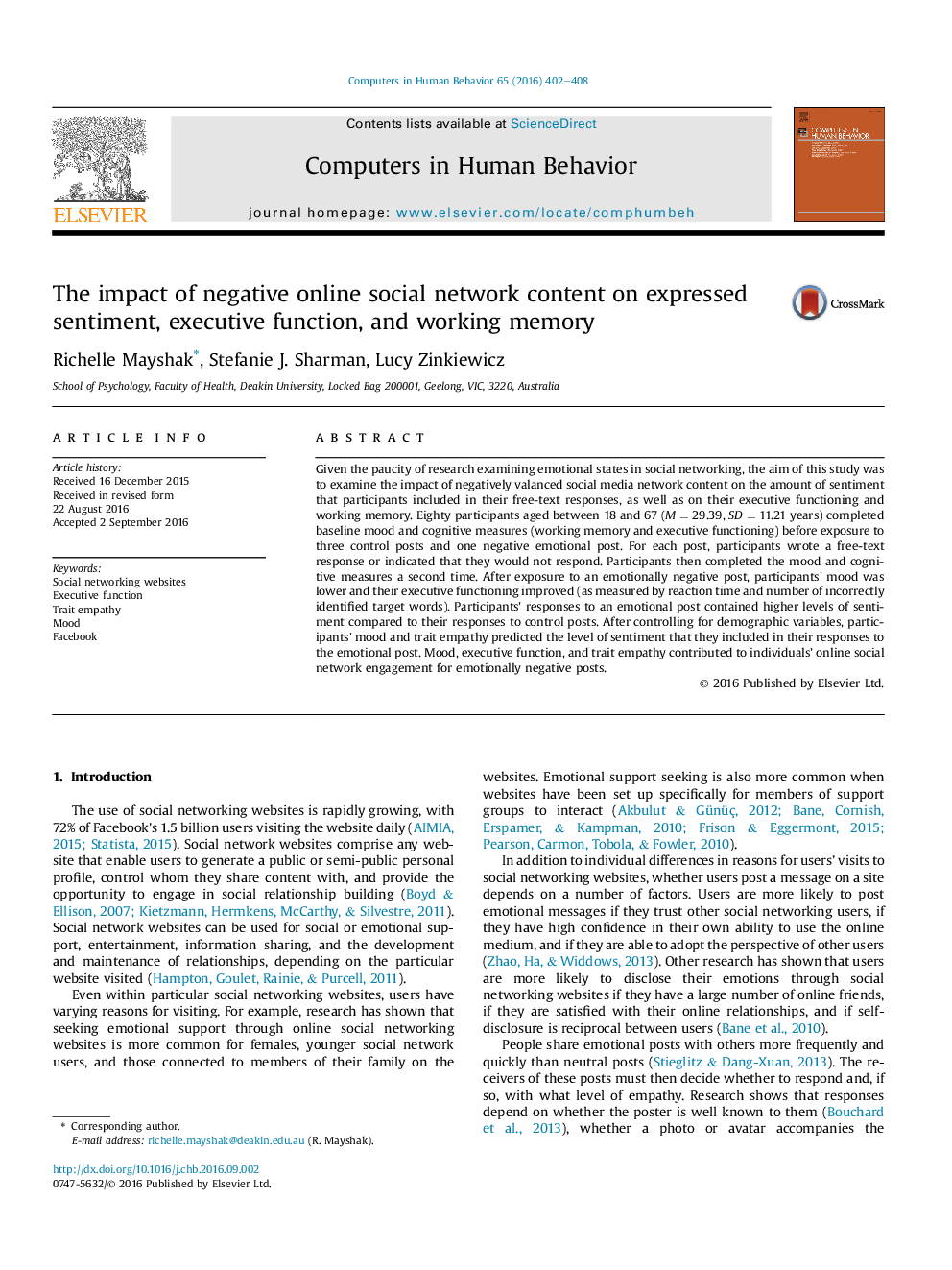| Article ID | Journal | Published Year | Pages | File Type |
|---|---|---|---|---|
| 4937807 | Computers in Human Behavior | 2016 | 7 Pages |
Abstract
Given the paucity of research examining emotional states in social networking, the aim of this study was to examine the impact of negatively valanced social media network content on the amount of sentiment that participants included in their free-text responses, as well as on their executive functioning and working memory. Eighty participants aged between 18 and 67 (MÂ =Â 29.39, SDÂ =Â 11.21 years) completed baseline mood and cognitive measures (working memory and executive functioning) before exposure to three control posts and one negative emotional post. For each post, participants wrote a free-text response or indicated that they would not respond. Participants then completed the mood and cognitive measures a second time. After exposure to an emotionally negative post, participants' mood was lower and their executive functioning improved (as measured by reaction time and number of incorrectly identified target words). Participants' responses to an emotional post contained higher levels of sentiment compared to their responses to control posts. After controlling for demographic variables, participants' mood and trait empathy predicted the level of sentiment that they included in their responses to the emotional post. Mood, executive function, and trait empathy contributed to individuals' online social network engagement for emotionally negative posts.
Related Topics
Physical Sciences and Engineering
Computer Science
Computer Science Applications
Authors
Richelle Mayshak, Stefanie J. Sharman, Lucy Zinkiewicz,
